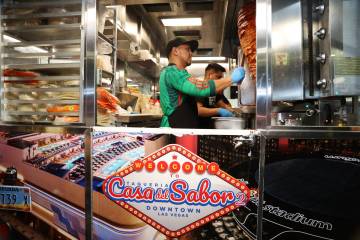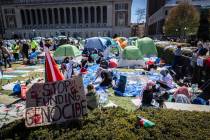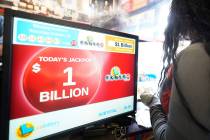NEVADA VIEWS: Not giving up the fight for choice for Nevada children
While the coronavirus has impacted all of us, the impact on children is particularly profound and potentially the longest-lasting. While we hope we will return to something approaching our prior lives in a few short months thanks to vaccinations, children who have lost more than a year of schooling face obstacles that could haunt them for the rest of their lives. The burden that children now face does make one thing clear: Nevadans are not about to give up the fight for more learning choices.
School choice has helped many families through the pandemic. In some cases, choice has allowed families who couldn’t keep their children at home to opt into a school that reopened for in-person learning. In other cases, it’s allowed families to choose an all-virtual mode if that worked better for them. Some Nevada students were already using school choice before the pandemic to attend virtual school full-time, which means their instructors didn’t struggle to adapt to lessons via Zoom.
But as the past several months have demonstrated, it is those with the least access to school choice who suffer the most. Wealthy families can afford to buy laptops, pay tuition for independent schools or even hire private tutors for one-on-one lessons. By contrast, poorer students often face difficulties even accessing the internet for online learning. Little wonder that a recent Census Bureau survey showed that nearly three times as many children in low-income households had only sporadic live contact with their teachers (18.5 percent) as households with incomes of more than $200,000 (6.5 percent).
We can’t afford to leave thousands of low-income and vulnerable students behind, as we did when one-third of students failed to log on for online lessons in Clark County last spring. For this reason, parents and community leaders and I have worked hard to fill in the gaps, trying to connect students with laptops and internet connections. Businesses and donors have generously given to our Donate a Laptop campaign, which seeks to match families — particularly families with English language learners — to the resources they need for online learning.
The support has been encouraging, but the fight to bring more learning opportunities and school choice to Nevada must expand, especially during the upcoming legislative session. We should work to expand the Opportunity Scholarship program for low-income families, which currently helps just more than 1,000 students. We should be open and supportive of new learning options — such as microschools and learning pods — that are forming to fill gaps in our current system and keep children learning in safe ways that work for their families.
The Donate a Laptop campaign, learning pods and other choice initiatives hold one factor in common: They seek to reach children and families where they are — responding to their needs, rather than expecting the students to respond to them. That philosophy of placing the student’s needs first underpins the entire school choice movement, which seeks to match each student to the right school for his or her talents, learning style and family situation.
National School Choice Week, held from Jan. 24 through Jan. 30, highlights the benefits of choice for the millions of students who have found a learning environment that works well for them. But even as we celebrate the many students who love their public school, private school, online school or microschool, we also continue to seek out those left behind. Just as we worked to provide laptops for each child this fall, so, too, will we persevere until every family can choose the quality educational option that works best for them — because the next generation remains too important for any child to be left without learning opportunities.
Valeria Gurr is Nevada state director of the American Federation for Children.




























